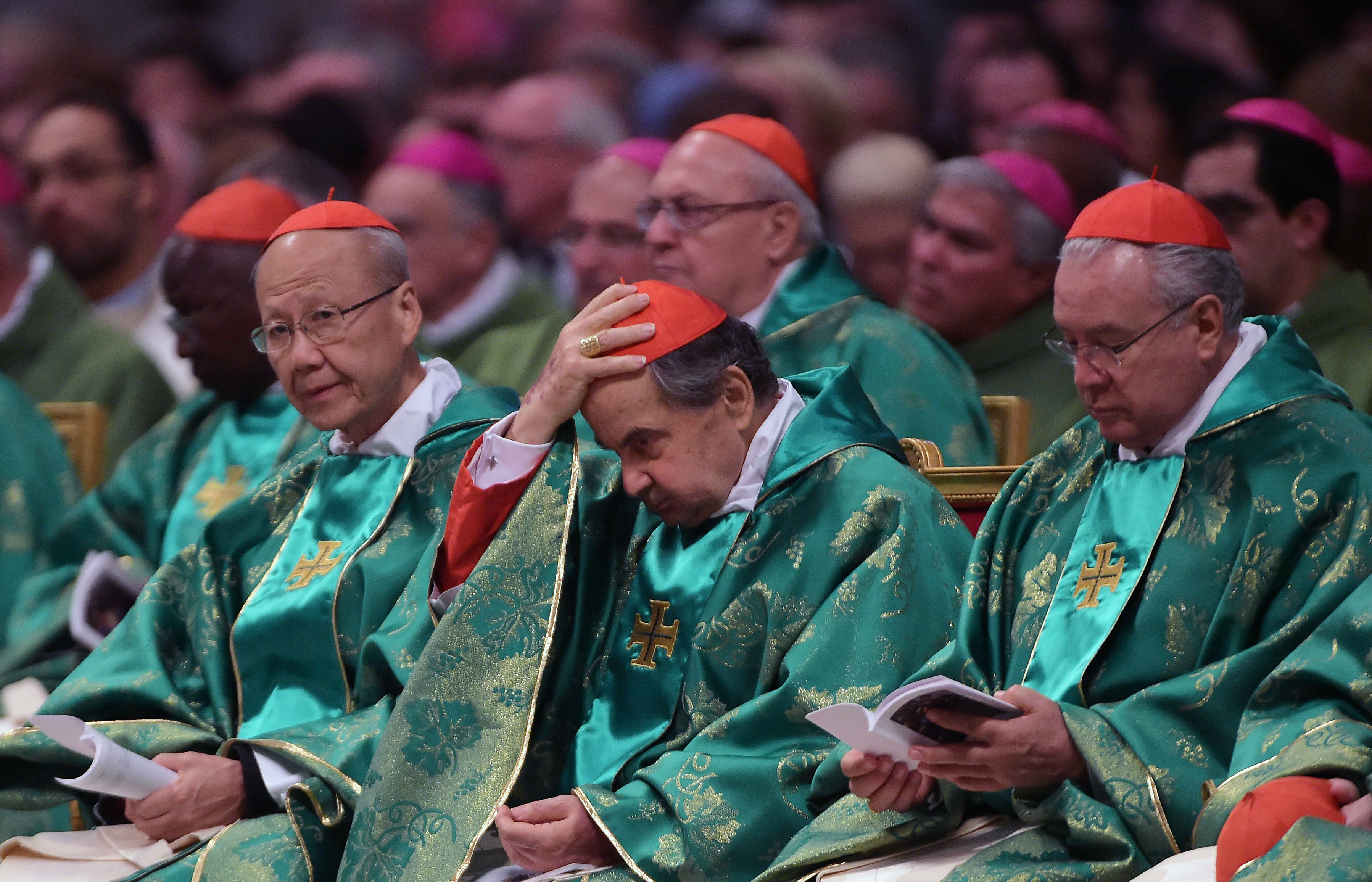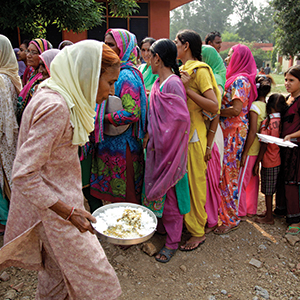Indian Christian leaders are calling for dialogue to avert war on the India-Pakistan border following the Indian army’s military strikes against the “terrorist units” that India says target it from Pakistan-administered Kashmir.
Tensions between the two nuclear-armed neighbours have escalated following recent killings of both Indian and Pakistani soldiers. “War is not a solution, it will only exacerbate the situation,” Archbishop Kuriakose Bharanikulangara of Faridabad said after several political factions in India pushed for military action against Pakistan.
India has evacuated 10,000 villagers from the border area, setting up relief camps (above) for the evacuees. Catholic parishes and schools in Jammu and Kashmir state prayed for peace on International Peace Day, 21 September. Hundreds of students from the state took part in a prayer programme organised by the Jammu-Srinagar Diocese, Caritas India and local Catholic schools.
The Iraqi Parliament voted last week to close the door to any possibility of changing the legal status of the northern province of Nineveh. The vote on 26 September aimed to halt proposals to split the province and ensure that “protected areas”are reserved for religious and ethnic minority groups, with wide political and administrative autonomy. In the face of the genocidal attacks by Islamic State on Christians and Yazidis in the region there have been significant calls, particularly in the US, to turn the Nineveh Plain into an autonomous area, reserved for the Chaldean Christian and Assyrian populations.
MPs opposing the idea said any change to the status of the province would violate the Iraqi Constitution. They argued that the proposal was an attempt to influence “future political scenarios” in the region “under the pretext of aid to religious minorities”.
In Canada, Quebec’s cardinal has said he will not refuse funerals for those choosing assisted death. Cardinal Gerald Lacroix (above) was reacting to a document, published in mid-September by the bishops of Alberta and the Northwest Territories and addressed to the clergy, which said sacraments and celebrations may be refused for those opting for euthanasia. “The Catholic Church accompanies people in every step of their life,” the Cardinal said on 29 September. “We do that in dialogue with every person and every family that wishes to be accompanied.”
In Montreal, Archbishop Christian Lepine also said he does not intend to ask his priests to refuse funerals for those who choose the now legal medically-assisted dying. In June, euthanasia became legal in Canada after parliament passed a contentious bill on doctor-assisted death for terminally ill people.
Sanctions fears
The Catholic Church in Nicaragua has expressed concern over the impact of the bill passed in the US House of Representatives on 21 September that calls for sanctions against Nicaragua. The “NICA Act” requires the United States to “oppose international loans to Nicaragua until the Ortega regime takes serious steps towards democratic reforms”. Next month, President Daniel Ortega is running for his third term with his wife, Rosario Murillo, as his vice-presidential running mate. Opposition parties have been banned from the elections and Ortega has said international election observers will not be allowed in.
The Act would limit international funds to Nicaragua to pressure the Government into allowing open elections in November. The Archbishop of Managua, Cardinal Leopoldo Brenes, said: “There is no doubt that this initiative will have an economic impact, both for individuals and for the poor. Many programmes implemented through aid will be compromised”.
Beatification waiver
Pope Francis has waived the five-year waiting period before a cause for beatification can be initiated in the case of Fr Jacques Hamel. The French priest was murdered at the altar of his church by Islamic extremists while celebrating Mass on 26 July. Rouen’s Archbishop, Dominique Lebrun, announced the waiver after celebrating a Mass last Sunday to re-open the church of Saint-Étienne-du-Rouvray, where Fr Hamel was killed.
According to a statement released by the French Bishops’ Conference, Archbishop Lebrun was informed by the Congregation for the Causes of Saints that Pope Francis “has dispensed of the five-year waiting period usually required before starting the official investigation of the beatification”. The liturgy at Sunday’s Mass included readings and prayers, all of which focused on themes of forgiveness, reconciliation and peace. The specific rite used for the Mass was the one prayed in cases of desecration and had been adapted to the occasion. The five-year waiting period is rarely abrogated, but there have been two notable exceptions in recent years: St Teresa of Calcutta and St John Paul II. During a 14 September Mass at the Vatican in memory of Fr Hamel, Francis said the priest was part of a “chain of martyrs”.
Haitians lose US privileges
With the increase in Haitians arriving on the Mexican border in 2016, the US Department of Homeland Security on 22 September announced that Haitians would no longer be granted special privileges. Since 2005, the US had granted Haitians humanitarian visas and did not deport them.
More than 7,800 Haitians have entered Mexico during 2016, attempting to reach the US. Many were living in Brazil until the construction boom that accompanied the Olympics ended. Fr Patrick Murphy, director of Casa del Migrante in Tijuana, said the Mexican Government should do more to help Haitians stranded in the city and that “this situation is just the beginning”. Hundreds of Haitians are still reportedly making the trek from Brazil. As The Tablet went to press, Hurricane Matthew was bearing down on Haiti.
New cardinals may be created “by the end of the year, or the beginning of the next”, said Pope Francis (above, meeting the congregation after Mass in the Azerbaijan capital Baku last Sunday). Speaking to reporters on the plane back from Azerbaijan, Francis said he was actively studying the names of candidates to be given the red hat and the privilege of electing his successor. He added that he was trying to name candidates from all five continents so as to reflect the universality of the Church and not just its “European centre”.
06 October 2016, The Tablet
News Briefing: The Church in the World
 Loading ...
Loading ...
Get Instant Access
Subscribe to The Tablet for just £7.99
Subscribe today to take advantage of our introductory offers and enjoy 30 days' access for just £7.99



